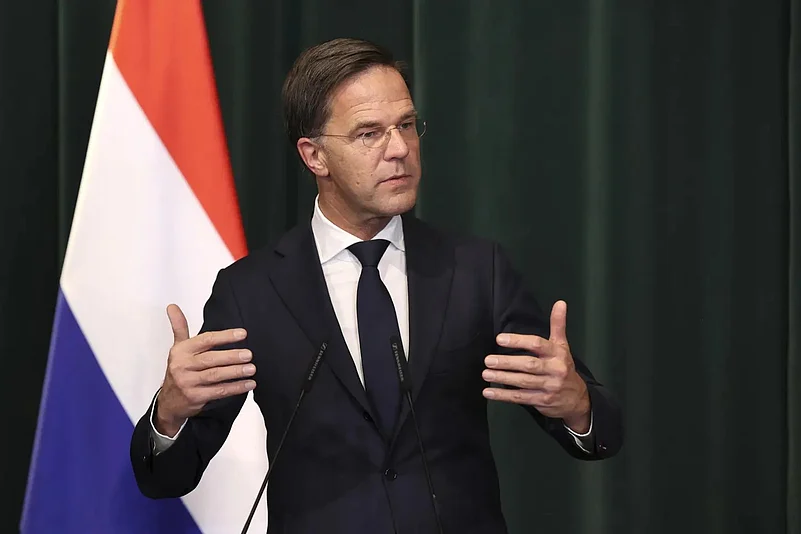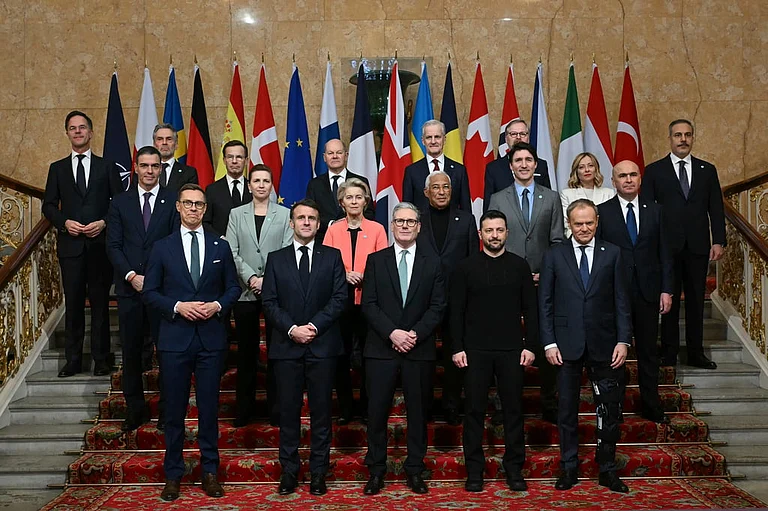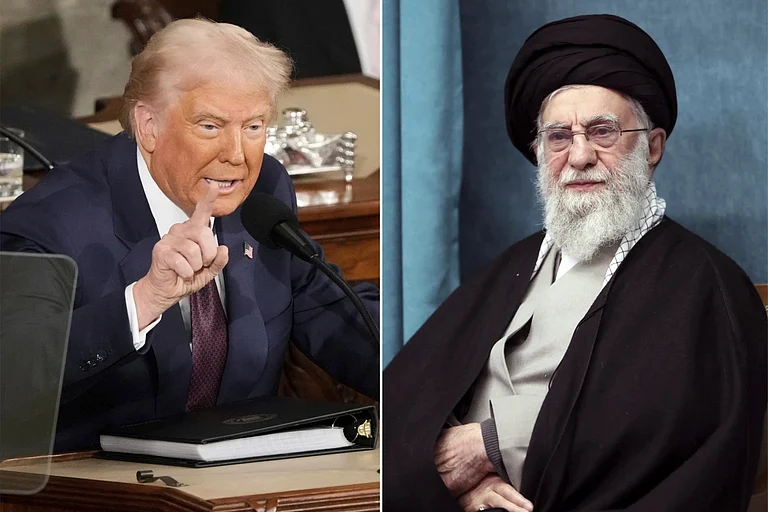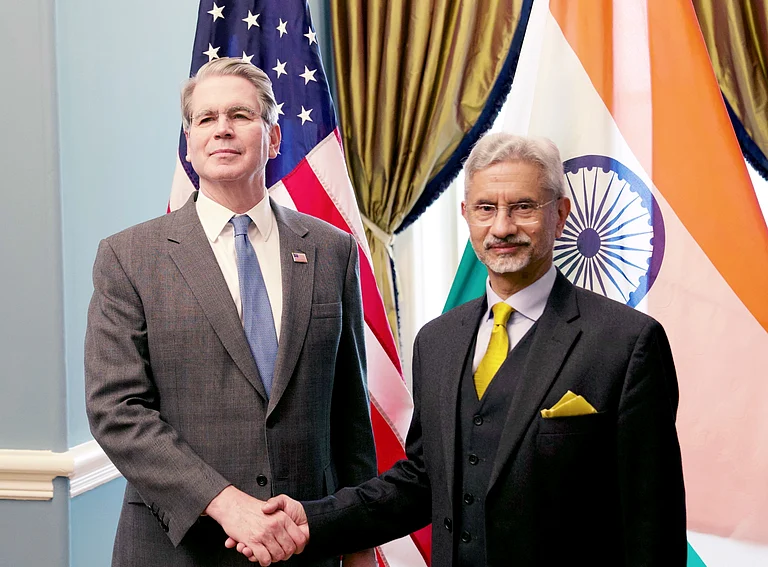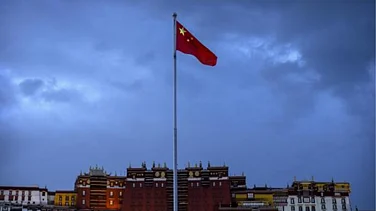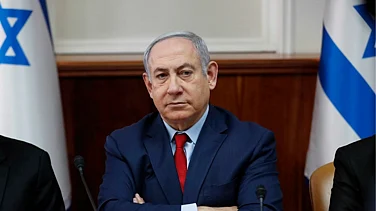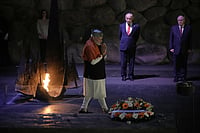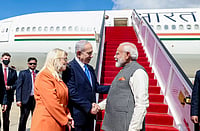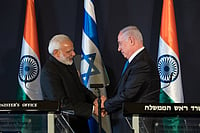NATO’s Secretary General, Mark Rutte, is on a high after his meeting with US President Donald Trump in Washington.
Trump no longer thrashes NATO, as member states are now committed to increasing their contribution to 5 per cent of their GDP for the defence of Europe. Earlier, NATO was largely funded by American taxpayer money. Trump is also ensuring that NATO pays for the weapons the US will now send to arm Ukraine.
Rutte is delighted that Trump is now gradually veering round to the idea that Russian President Vladimir Putin does not want to end the war in Ukraine. Europe had warned Trump earlier, but the US President was not convinced. Enthused by Trump’s threat to impose sanctions not just on Russia but on countries doing business with Moscow, Rutte warned India, China, and Brazil about secondary sanctions.
"My encouragement to these three countries, particularly is, if you live now in Beijing, or in Delhi, or you are the president of Brazil, you might want to take a look into this, because this might hit you very hard," Rutte told reporters. Europe and the Biden administration had tried their best to stop India from buying Russian oil, but failed. His remarks are an attempt to exert pressure on Putin, through friends like India, China and Brazil, to put an end to a war that has threatened Europe’s security.
The NATO chief’s pointed reminder to the three nations that their growing trade with Russia is at risk of getting slapped with 100 per cent sanctions is a bit of diplomatic overreach by Rutte. The secretary general was merely echoing President Trump’s warning to Russia of not just sanctions but secondary tariffs as well.
The US President had promised to stop the Ukraine war within days of assuming power, but election rhetoric and ground reality are very different. Now, nearly six months into his term, Trump is no closer to ending the fighting either in Europe or Israel’s war on Gaza. Exasperated with Putin, he had given a 50-day deadline to Russia to silence the guns.
Double-speak: Yet, the fact remains that while Europe has reduced its dependence on Russian oil from 29 per cent in the first quarter of 2021 to just 2% in the first quarter of 2025, it continues to import liquefied natural gas from Russia, though this has decreased from 22 per cent before the war to 19 percent in 2025. Ironically, in 2023, LNG imports from Russia surged by about 38 per cent, with the EU importing around 22 per cent of Russian LNG that year.
Reacting to Rutte, China’s foreign ministry spokesman Lin Jian said, "Dialogue and negotiations are the only way viable way out of the (Ukraine) crisis,” and added, "China opposes unilateral sanctions and long arm jurisdiction. Tariff wars have no winners (and) coercion and pressure will lead nowhere."
India has not yet responded to Rutte, but will probably do so at the weekly news conference on Thursday.
Trump, the most enthusiastic salesman for the American military-industrial-Congressional complex, is so glad to make Europeans pay for weapons to be given to Ukraine.
However, Russia enjoys a local military advantage that is not diminished significantly by Trump's announcement of more arms from NATO to Ukraine. "Kyiv will lose more men and territory before signing on the dotted line", says Ambassador KP Fabian, a retired diplomat.
NATO, long wary of Trump’s ambivalence, is now cautiously optimistic as the US President is inching closer to its position on Ukraine. But the optimism is tempered by uncertainty: Trump has set a 50-day deadline for Russia to end the war—an ultimatum that could upend fragile diplomatic equations before it even begins.







